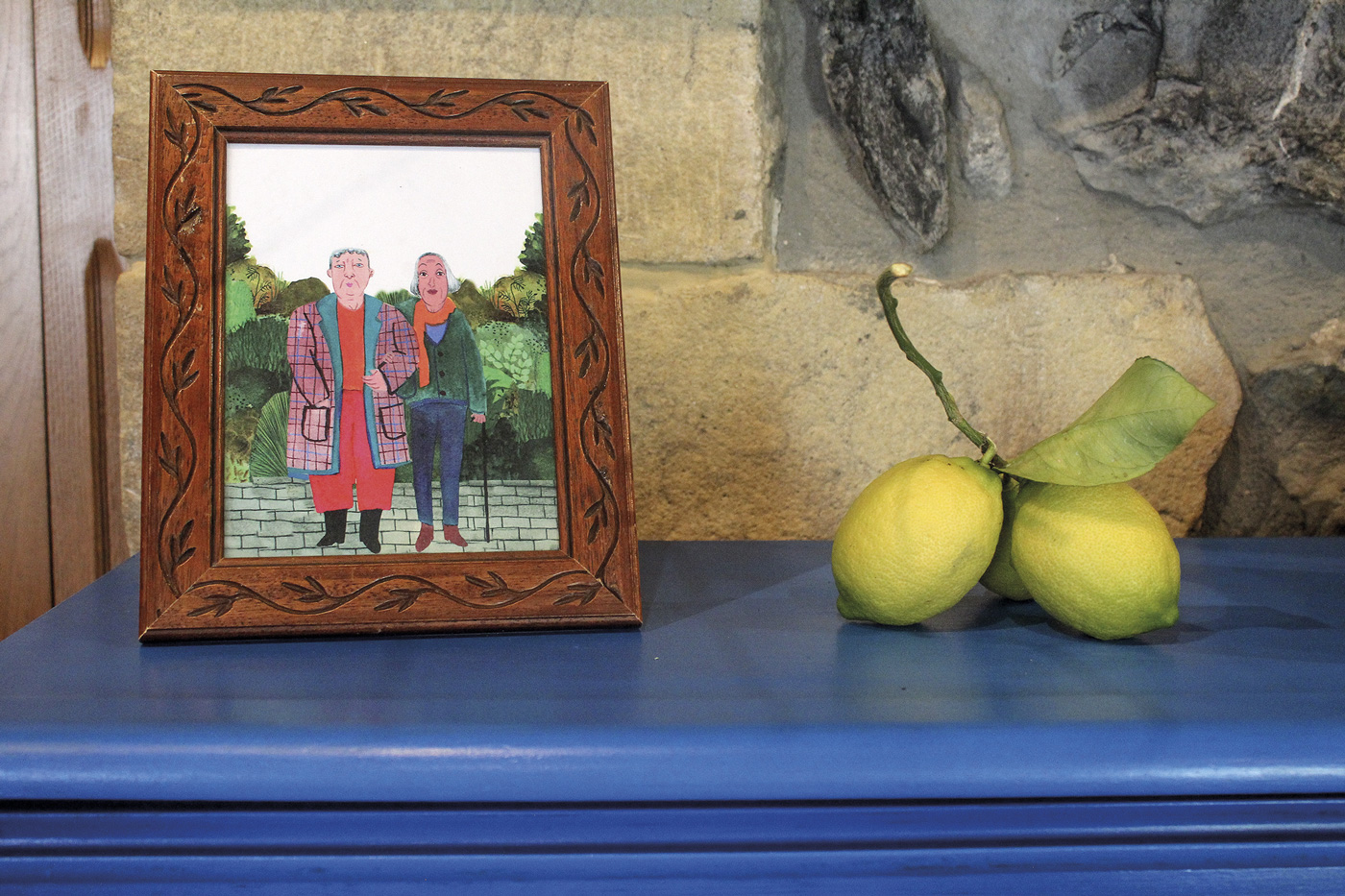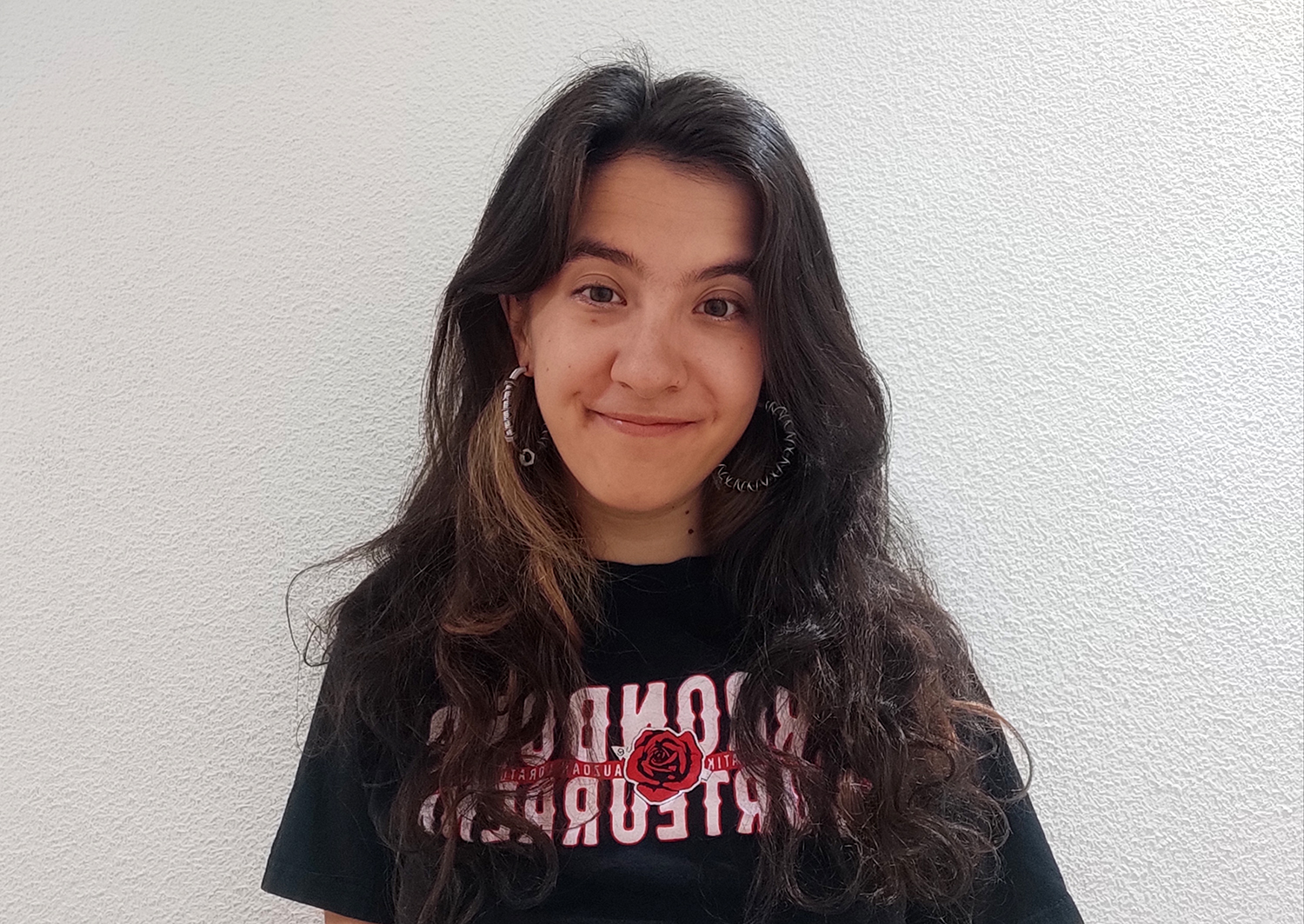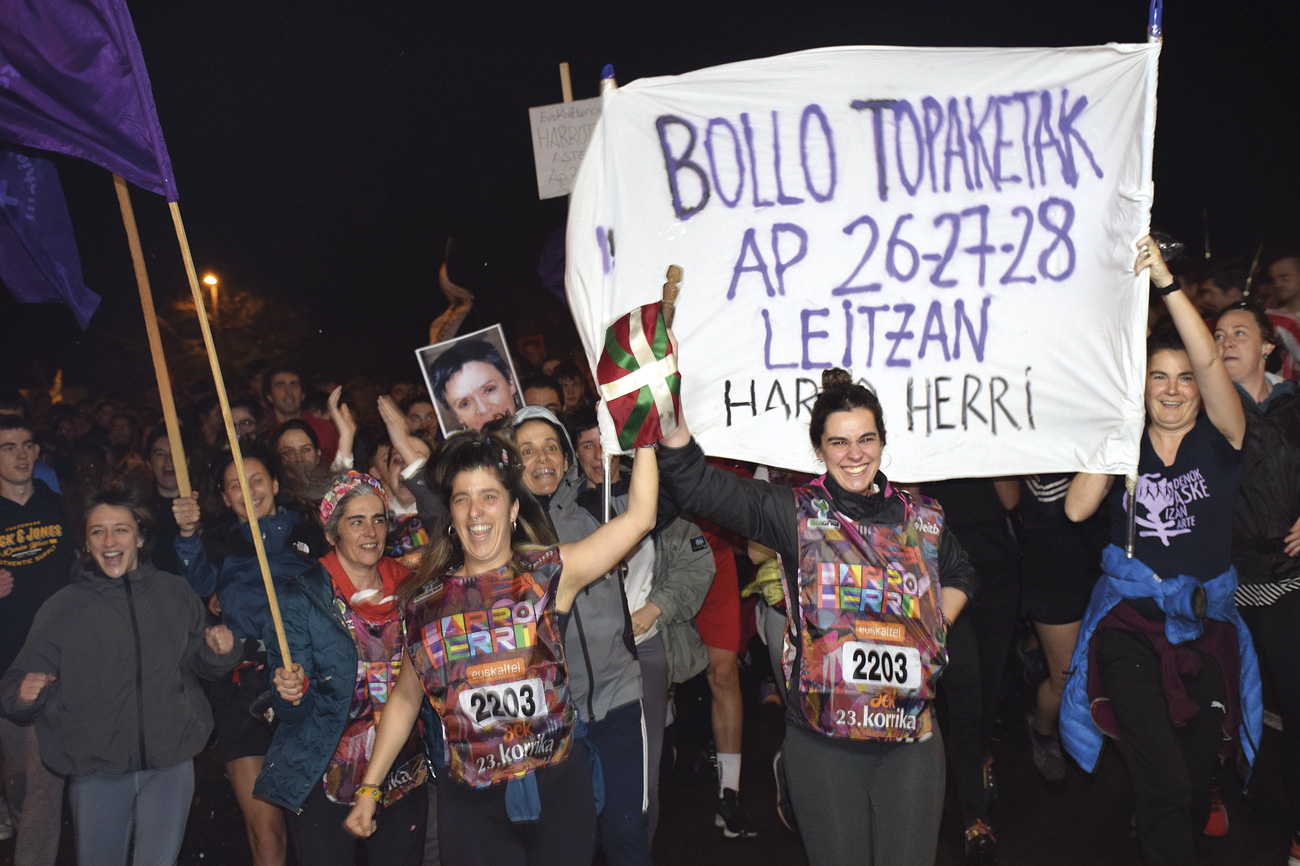Hamza Abuhamdia: "The body is the first land occupied by colonial power"
On Saturday, Hamza Abuhamdia, a Palestinian queer settled in Paris, will go to Makea to take part in the meeting for Palestine. He will conduct a workshop on pinkwashing run by Israel – with simultaneous translation to the Basque language – at 15:30 in the afternoon. Israel’s pinkwashing is to position LGBT as a defender of people’s rights and to present it as a symbol of democracy, always focused on that view, so that colonization and genocide against the Palestinians can be kept secret. Abuhamdia is thoroughly demining this machinery.

For starters, can you introduce yourself?
Let's see if I'm alive, Palestinian, queer, humorist, activist -- all at once, but in what order, I don't know. I have many layers of identity, and you can change them. Yes, I always say that I am Palestinian. I can also identify myself as a citizen of Hebron, because my family is linked to that city. Do you know her in Hebron? It's a historic city of Palestine, the city of Abraham. I can also identify myself as loving. I also have to say that I have a very Marxist and difficult reading to look at the world outside that prism.
You were born in Jordan, the son of two Palestinian parents who suffered forced exile.
My family has also suffered the Israeli occupation. His father has been a member of the resistance of the Palestine Liberation Organization PAE [PLO] since he was 16 years old. In Palestine, in Lebanon and in Syria, Israel put him in jail, where he was arrested by court order. He was exiled to Jordan in 1978 and could not give the name of Palestine to the historic territory. It was authorised in 1998, following the intervention of former President Jassir Arafat. When he came back, everything changed: suddenly, the revolutionary became the "little star" of the city, became a celebrity, was named colonel and all of that had a great influence on the family environment. Four years later he returned to prison and spent eleven years in prison, until the cancer took him with him. During those eleven years I visited him only twice. He told us that he received many ill-treatment, among others, with the evidence of treatment by Israeli pharmaceutical companies in the body of the Palestinians, including Teva, which is on the list of companies to boycott.
We are four children, my two older brothers are born in Hebron (Palestine, West Bank), as an Israeli law only reserved the right to be in Palestine to those originally from Palestine. By the time I was born, the law had changed, and the children did not necessarily have to be born in Palestine. I tell you everything to make you understand that Israel really gives us everything we have.
Was your mother also a militant?
They were forcibly married. When his father left prison, a kusi from his mother, a senior SEMP officer, told him it was time to marry about 30 years old and form a family. Let's say the mother's side was the bourgeoisie, a little feudal, and the father's side was also, but more intellectual, the left side. This led to major conflicts between them. Suppose your father wanted to live in a refugee camp, to stay in the village, in the fight, but his mother didn't, wanted a safer space for his children, wanted to attend school ...
"Be Jewish, be LGBT, Arab, black, transe or female, in the end, if you're not a white, clean man, you're in the spotlight."
One of your struggles is to denounce the pinkwashing of Israel.
Pinkwashing is a strategy focused through the adoption of clichés about LGBT people and their rights, always from the Western perspective. The intention is not to look at unethical and criminal practices – in the case of Israel, colonialism, war, genocide… – by focusing on it. It is a policy designed and drawn up by some people and involving social networks and the mass media.
There are structures and Israeli citizens who denounce their homophobia, the homophobia of the Zionists. Let's say that Jean Sternen Mirage gay à Tel Aviv (The Gay Fantasy Tel-Aviven) is a terrible book in that sense, he explains that strategy in detail. It has to be said that Israel’s society is the expansion of that of the West – there are many Italians, French, English, Germans… – and there has been a real movement for LGBT rights there as well. But then the Tel Aviv Government and City Hall, of course, started doing great marketing, hiding expressions and LGBT fobos attacks.
In the manifesto you denounce a petition liberating the queer of Palestine through the dichotomies of Israel: barbarians/civilized; humans/animals…
I want to make it clear that Israel is a continuation of the Nazi and fascist movement in Europe as such, as a Zionist movement and company. You change the word "Jew" with the word "queer," and you're worth it, we're eugenicist ideology. After all, the question is how the regime looks at the body. If you don't get into the standard they've drawn, you'll be discriminated against. In this sense, there are no great differences between the present queer body and the Jewish, ROM or LGBT body of the 1940s.
The struggle must be intersectional. Whether you're a Jew, whether you're LGBT, Arab, black, transe or a woman, in the end, if you're not a clean, white man, you're in the spotlight. Imagine that the system is annoyed by a white man who disagrees with the situation.
Why should anything be in favour of Palestinian freedom?
To understand this one must look at colonial history and the development of colonial powers. The body is the first territory occupied by colonial power. The body is essential for colonial power, because it needs individuals to complete and expand its project. This body must be domesticated, each body must join the discipline, accept precepts. That is what the queers have understood. The Palestinians too. The Palestinians do not want to be at the mercy of this machinery, they do not want to give it their body, their land and their ability to resist the storm. That is why both battles have to go hand in hand. Both systems are in the spotlight, both Palestinian and queer. I want to add that it's the body of women at the forefront, and that's why LGBT fighting and feminism are also going together.
A final look at Palestine. Do you manage to retain hope?
I repeat that I try to maintain my mental health, because the legs are very strong. It's hard to talk about.
We all have paradoxes, and I'm in a bubble, in which I feel positive gestures. But what weight does that have in generality? I don't know. Do I have any hope? Palestinian poet Mahmoud Darwich says: "We Palestinians have an incurable disease called hope," the spokesman said.
1984an ‘Bizitza Nola Badoan’ lehen poema liburua (Maiatz) argitaratu zuenetik hainbat poema-liburu, narrazio eta eleberri argitaratu ditu Itxaro Borda idazleak. 2024an argitaratu zuen azken lana, ‘Itzalen tektonika’ (SUSA), eta egunero zutabea idazten du... [+]






















